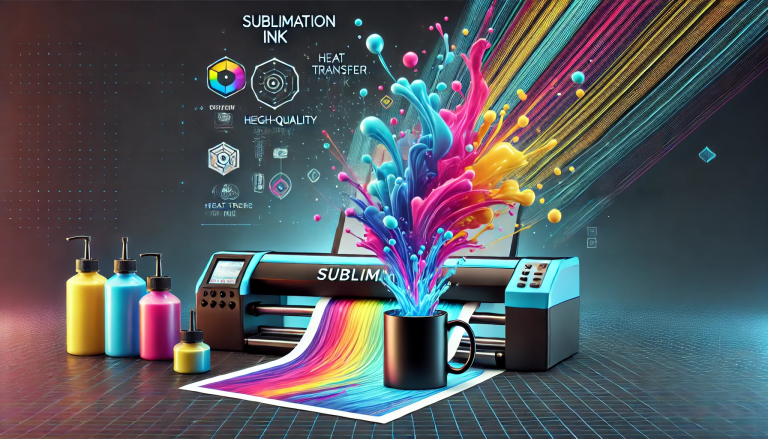“Sublimation Ink: The Heat Transfer Paper Solution!” – SUBLIMATIONTRANSFERPAPER – Vinyl Sublimation Paper Roll Factory, Digital Sublimation Paper Wholesale, Made in China
Introduction
Sublimation ink is a popular choice for printing on fabrics and other materials. It is a great way to create vibrant, long-lasting prints that won’t fade or crack over time. But can you use sublimation ink on heat transfer paper? The answer is yes! Heat transfer paper is a great way to transfer designs onto fabrics, and when combined with sublimation ink, you can create beautiful, durable prints that will last for years. In this article, we’ll discuss the basics of using sublimation ink on heat transfer paper, including the types of paper available, the best practices for printing, and the advantages of using this method.
Creative Ideas for Using Sublimation Ink on Heat Transfer Paper
1. Create Customized T-Shirts: Sublimation ink and heat transfer paper can be used to create customized t-shirts with unique designs. Simply print the desired design onto the transfer paper using the sublimation ink, and then use a heat press to transfer the design onto the t-shirt.
- Create Customized Mugs: Sublimation ink and heat transfer paper can also be used to create customized mugs. Print the desired design onto the transfer paper using the sublimation ink, and then use a heat press to transfer the design onto the mug.
- Create Customized Phone Cases: Sublimation ink and heat transfer paper can be used to create customized phone cases with unique designs. Simply print the desired design onto the transfer paper using the sublimation ink, and then use a heat press to transfer the design onto the phone case.
- Create Customized Pillows: Sublimation ink and heat transfer paper can be used to create customized pillows with unique designs. Simply print the desired design onto the transfer paper using the sublimation ink, and then use a heat press to transfer the design onto the pillow.
- Create Customized Mouse Pads: Sublimation ink and heat transfer paper can be used to create customized mouse pads with unique designs. Simply print the desired design onto the transfer paper using the sublimation ink, and then use a heat press to transfer the design onto the mouse pad.
- Create Customized Coasters: Sublimation ink and heat transfer paper can be used to create customized coasters with unique designs. Simply print the desired design onto the transfer paper using the sublimation ink, and then use a heat press to transfer the design onto the coaster. Troubleshooting Common Issues When Using Sublimation Ink on Heat Transfer PaperSublimation ink is a popular choice for heat transfer paper due to its vibrant colors and durability. However, it can be difficult to use and can cause a variety of issues if not used correctly. Here are some tips for troubleshooting common issues when using sublimation ink on heat transfer paper.
- Poor Color Quality: Poor color quality can be caused by a variety of factors, including incorrect printer settings, incorrect paper type, or incorrect ink type. To ensure the best color quality, make sure you are using the correct printer settings, paper type, and ink type for your project.
- Fading: Fading can be caused by incorrect heat settings or incorrect paper type. To prevent fading, make sure you are using the correct heat settings and paper type for your project.
- Bleeding: Bleeding can be caused by incorrect printer settings or incorrect ink type. To prevent bleeding, make sure you are using the correct printer settings and ink type for your project.
- Cracking: Cracking can be caused by incorrect heat settings or incorrect paper type. To prevent cracking, make sure you are using the correct heat settings and paper type for your project.
- Poor Adhesion: Poor adhesion can be caused by incorrect heat settings or incorrect paper type. To ensure the best adhesion, make sure you are using the correct heat settings and paper type for your project.
By following these tips, you can ensure that your sublimation ink prints come out looking their best. If you are still having issues, it may be best to consult a professional for further assistance.
Tips for Achieving the Best Results When Using Sublimation Ink on Heat Transfer Paper
1. Start with a clean surface: Before you begin printing, make sure that the surface you are printing on is clean and free of dust, dirt, and other debris. This will help ensure that the ink adheres properly and that the colors are vibrant.
- Use the right paper: Sublimation ink works best when used with a special type of heat transfer paper. Make sure you are using the correct paper for the job.
- Use the right printer settings: When printing with sublimation ink, it is important to use the correct printer settings. Make sure you are using the correct resolution, color mode, and other settings for the best results.
- Use the right temperature: Heat transfer paper needs to be heated to a certain temperature in order for the ink to transfer properly. Make sure you are using the correct temperature for the paper you are using.
- Use the right pressure: When pressing the paper onto the surface, make sure you are using the correct amount of pressure. Too much pressure can cause the ink to smudge or bleed.
- Allow the ink to cool: After pressing the paper onto the surface, allow the ink to cool before removing the paper. This will help ensure that the ink has fully transferred and that the colors are vibrant.
- Clean up any excess ink: After the ink has cooled, make sure to clean up any excess ink that may have transferred onto the surface. This will help ensure that the colors remain vibrant and that the surface is not damaged.Exploring the Benefits of Using Sublimation Ink on Heat Transfer PaperSublimation ink is a type of ink used in the printing process that is becoming increasingly popular due to its many benefits. Sublimation ink is used in conjunction with heat transfer paper to create vibrant, long-lasting prints on a variety of materials. This article will explore the advantages of using sublimation ink on heat transfer paper.
One of the primary benefits of using sublimation ink on heat transfer paper is the vibrant colors that can be achieved. Sublimation ink is designed to produce vivid, high-quality prints that are resistant to fading and discoloration. This makes it ideal for creating vibrant designs that will last for years. Additionally, sublimation ink is designed to be used on a variety of materials, including fabrics, plastics, and metals. This makes it a versatile option for a wide range of projects.
Another advantage of using sublimation ink on heat transfer paper is the ease of use. The process of transferring the ink to the material is relatively simple and can be done with minimal equipment. All that is required is a heat press, heat transfer paper, and sublimation ink. This makes it an ideal option for those who are new to the printing process.
Finally, sublimation ink is a cost-effective option for printing. The ink is relatively inexpensive and can be used multiple times before needing to be replaced. This makes it a great choice for those who are looking to save money on their printing projects.
In conclusion, sublimation ink on heat transfer paper offers a number of advantages for those looking to create vibrant, long-lasting prints. The ink produces vivid colors that are resistant to fading and discoloration, and it is easy to use with minimal equipment. Additionally, it is a cost-effective option that can be used multiple times before needing to be replaced. For these reasons, sublimation ink on heat transfer paper is an excellent choice for a variety of printing projects.
How to Choose the Right Sublimation Ink for Heat Transfer Paper
When it comes to heat transfer paper, choosing the right sublimation ink is essential for achieving the desired results. Sublimation ink is a special type of ink that is designed to be used with heat transfer paper. It is important to select the right ink for the job, as it can affect the quality of the finished product.
The first step in choosing the right sublimation ink is to determine the type of paper you will be using. Different types of paper require different types of ink. For example, some papers are designed to be used with dye-sublimation ink, while others are designed to be used with pigment-based inks. It is important to select the ink that is specifically designed for the type of paper you are using.
Once you have determined the type of paper you will be using, you can then select the right sublimation ink. There are several different types of sublimation inks available, including water-based, solvent-based, and UV-curable inks. Each type of ink has its own advantages and disadvantages, so it is important to select the one that best suits your needs.
When selecting a sublimation ink, it is also important to consider the type of image you will be transferring. Different types of images require different types of inks. For example, photographs require a higher quality ink than text or graphics. Additionally, some inks are designed to be used with specific types of fabrics, such as polyester or cotton.
Finally, it is important to consider the cost of the ink. Sublimation inks can be expensive, so it is important to select an ink that is within your budget. Additionally, some inks are designed to be used with specific types of printers, so it is important to select an ink that is compatible with your printer.
By taking the time to consider the type of paper, image, and cost of the ink, you can ensure that you select the right sublimation ink for your heat transfer paper. With the right ink, you can achieve the desired results and create beautiful, professional-looking prints.
Conclusion
In conclusion, sublimation ink can be used on heat transfer paper, but it is important to make sure that the paper is specifically designed for sublimation ink. Additionally, it is important to use the correct temperature and pressure settings when using sublimation ink on heat transfer paper. With the right combination of paper and ink, you can create beautiful and vibrant designs with sublimation ink on heat transfer paper.




